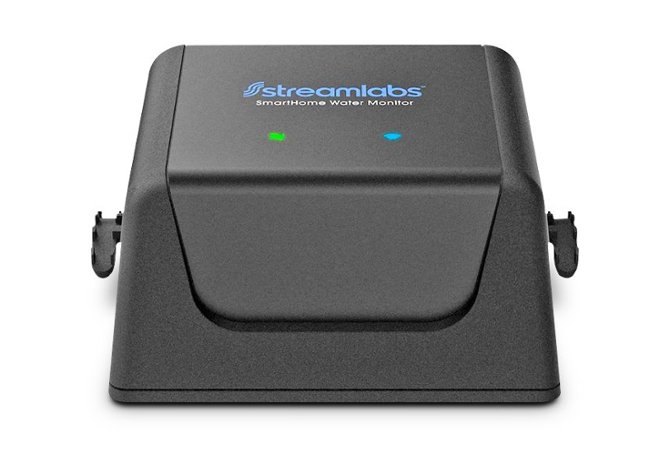Pros and Cons of Smart Leak Detection Systems

carousel
What to consider when protecting your home from leaks
How does a water leak detector work?
A water leak detection system works by monitoring the flow of water through your home's pipe system. Using strategically placed sensors, they work either using ultrasonic wavelengths or mechanical turbines. Use moisture-sensing leak detectors for point-of-use or under-sink applications, or close to appliances that use large amounts of water. To protect the entire house, consider systems that also track water usage with a built-in meter.
Some models come as audio-alarm-only systems that sound alerts in the event of leaks. However, most smart leak detection systems are reactive and come with a shut-off valve. When these systems detect any abnormal water usage, they cut off the water flow by closing the valve. Leak detector valves are ideally placed at the main water point entry to your home. This ensures that no matter the issue at hand, they shut off water flow from all water-using appliances to mitigate disastrous damage. Through temperature sensors, leak detection systems can tell when pipes are at risk of freezing, which can lead to cracking or bursting.
Smart leak detection systems connect to smartphones via downloadable applications. Use the apps to program the system and customize shut-off settings based on your home's water usage patterns. Whether a tub faucet is left running for too long, a pipe fitting bursts, or a toilet flapper gets jammed, these systems will shut off the water supply once water usage exceeds preset limits.
Pros of smart leak detectors
Building safety
Water leaks in your plumbing system may lead to the collection of water pools in hard-to-locate areas. As collected water seeps into nearby zones, this can compromise your building's structural integrity. Be sure to place sensors near potential danger areas like beneath pipes under sinks and on sump pumps.
Since leak detectors ensure you don't miss any potential leaks, they prevent the growth of harmful microbes, such as mold and mildew, which may cause an array of health hazards. Most smart models use spot or zone leak-detection mechanisms and offer real-time status home security and monitoring. As they shut off the water supply automatically, these devices help avoid potential damage and improve building safety.
Real-time alerts
Smart leak detectors monitor the accurate condition of your assets. Some have audible alarms, while others use the Internet of Things (IoT) technology and wireless connectivity to send alerts in case of any leaks. These smart systems pinpoint the exact location of problems using water and temperature sensors.
Pair them with mobile devices such as tablets and smartphones to get real-time notifications. Leak detection systems enable you to act promptly from remote locations, so your home stays safe in your absence. These will help limit water wastage and reduce your water bills.
Analytics
Sensors from smart leak detection systems can collect crucial data, such as water pressure, flow and humidity. Most offer event and history logs that you can access using the smart apps. Getting this data at regular intervals allows advanced analytics for a customized experience.
The data from smart detection systems enable quick decision-making by homeowners and building managers before major disruptions, which improves productivity. These preventive maintenance tools also help you prepare for unforeseen circumstances.
Cons of smart water leak detectors
Water leak detector installation
Installing a new leak detection system is an involved process. Based on your plumbing set up, you may need to cut and solder some pipes. Most smart leak detectors need integration with smart home systems. Consider models with compact sensors to simplify installation.
Smart home systems usually have a central control hub. This hub needs a connection to the internet through a local network or Wi-Fi. If you have plumbing experience, you may be able to install a leak detection system as a DIY project. However, comprehensive models will require technical help from a specialist or plumber.
Maintenance
Smart water detection systems need regular checks on power sources and batteries to ensure peak operation. Some lack third-party integrations, which can make routine maintenance challenging. Since they require a constant internet connection, be sure to perform periodic checks on your network's status.
Look out for models that are compatible with other smart devices for increased convenience. Are you using a hard-wired system with sensor cables? Then be sure to routinely check for loose connections. You can avoid the hassle by going for models with Wi-Fi connectivity.
Now that you've explored all you need to know about leak detection systems and how they work, enjoy the benefits of home protection, resource conservation and increased savings.